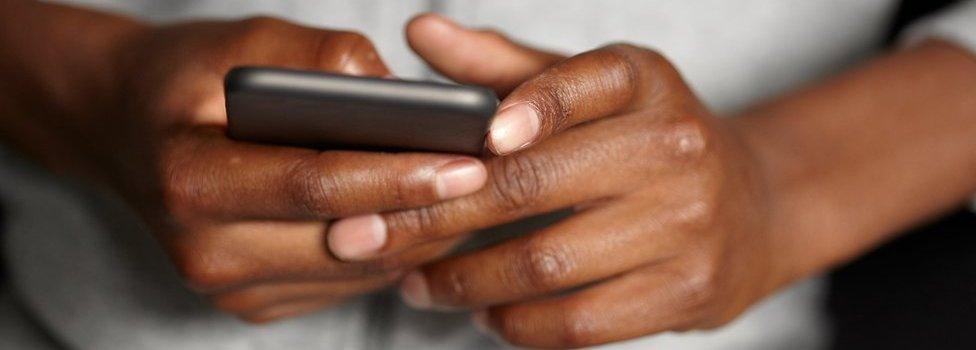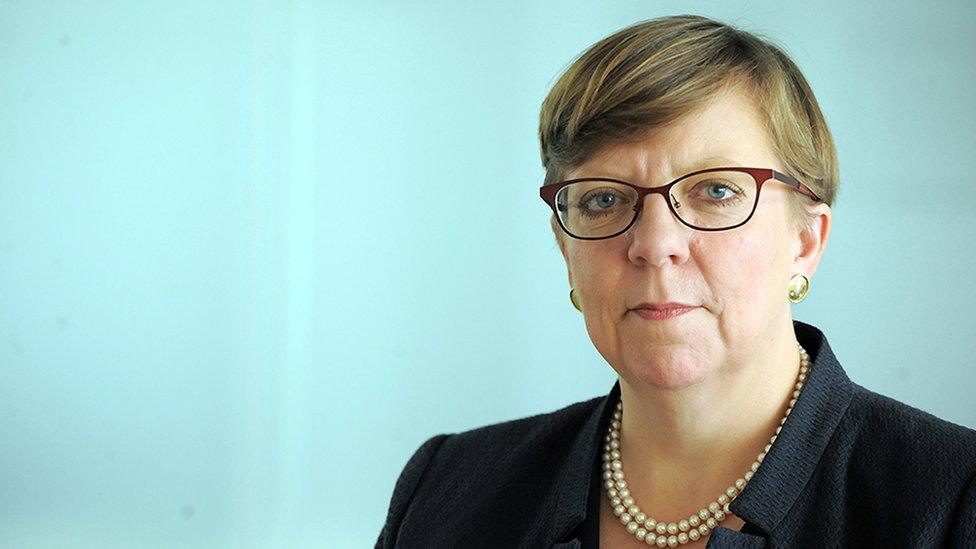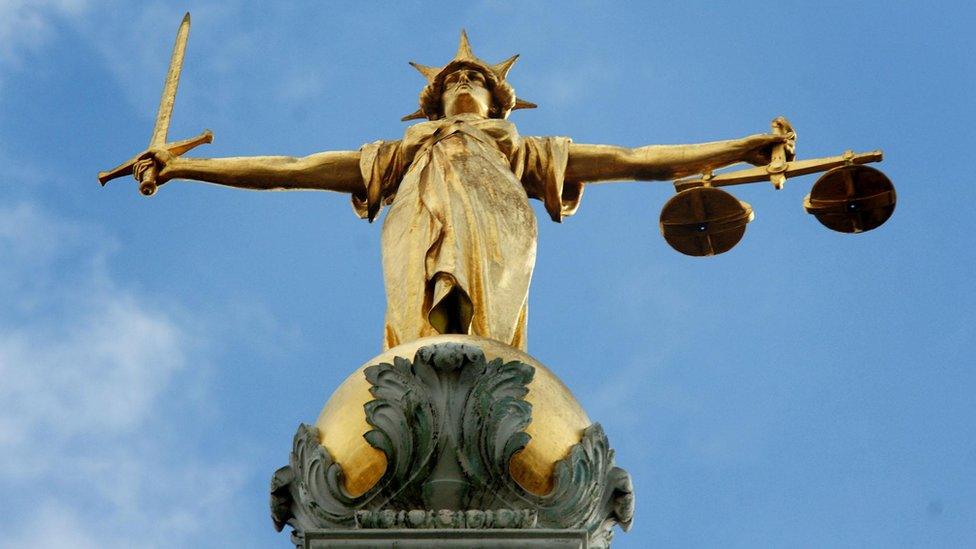Evidence withheld in 47 rape and sexual assault cases, says CPS
- Published
Liam Allan, whose trial collapsed after police were ordered to hand over phone records (video from December 2017)
Vital evidence was withheld from defence lawyers in 47 cases of rape and sexual assault, the Crown Prosecution Service has revealed.
The withholding of evidence was the main reason five of the cases had to be stopped.
Fourteen of the defendants had been held in custody on the charges.
More than 3,600 cases were looked at in England and Wales after high profile rape trials collapsed due to lack of disclosure by prosecutors and police.
Director of Public Prosecutions Alison Saunders, who is stepping down from the role in October, said: "Getting disclosure right is a fundamental part of a fair criminal justice system.
"Our analysis shows that in the vast majority of cases we are doing that - but there are cases where we are falling short, and that is unacceptable.
"I recognise the huge impact on individuals involved, and deeply regret every case where mistakes have been made."
Four cases against men accused of rape collapsed in December and January after it emerged that vital evidence had not been passed to their defence lawyers.
The trial of Liam Allan was stopped in December at Croydon Crown Court, days before the prosecution of Isaac Itiary at Inner London Crown Court was halted.
In January, a case against Samson Makele was stopped at Snaresbrook Crown Court and Oxford student Oliver Mears, who had spent two years on bail, had a case against him dropped days before his trial was set to start.
As a result, the CPS ordered a review of all cases where people had been charged with rape or sexual assault, but not yet reached trial, from January until mid-February.
Explaining to MPs on the Justice Select Committee how the situation could have come about, Ms Saunders said in some cases prosecutors had been bringing charges "very early" before seeking further evidence.
She said this happened in situations where it was feared suspects might skip bail, commit further offences or intimidate witnesses but acknowledged there were "lessons we have learned around making sure that we are dealing with disclosure at an earlier stage".

Analysis
By Clive Coleman, BBC legal affairs correspondent

Communications data, such as texts and emails, has been examined too late in some cases
The findings of this internal review are worrying.
A total of 47 rape or sexual assault cases were stopped - five where prosecutors found disclosure failures to be the main reason and 42 where disclosure was an issue.
As a result, 14 defendants had to be released from custody.
But what is far more worrying is that the review only covers a tiny fraction of the total number of cases prosecuted by the CPS each year.
Lawyers in the criminal justice system have claimed for years that disclosure failures are systemic and not specific to rape.
The CPS acknowledges this - we have, for example, seen recent people trafficking and fraud cases stopped because disclosure has failed.
Of even greater concern though is that there are no plans to review past cases where disclosure failings may have resulted in wrongful convictions.
The concern remains, therefore, that there could be innocent people serving sentences in prison who are there because disclosure has failed.

The CPS found "common themes" in the reasons for the 47 cases that had to be stopped, including communications evidence - such as texts, emails and social media - being examined too late, the failure to get medical and social services records, and the emergence of new evidence after charge.
It said that in cases where there are accusations of rape or sexual assault, it can often come down to "the word of one person against the other", so messaging between parties could be significant on both sides.
The report said that it believed the cases stopped as a result of the review would have been stopped before trial through the usual review process, but the investigation brought those decisions forward.
Assistant Chief Constable Stuart Prior, who leads on disclosure for the National Police Chiefs' Council (NPCC), said the system had "got it wrong in too many cases".
"We've got to realise that this is about real people. Whether that is a person reporting a matter to us, whether it be a person as a witness, or whether it be somebody accused of an offence - that's incredibly traumatic, whatever aspect you look at," he said.
"We've got to get disclosure right. We cannot allow mistakes to impact so greatly on people's lives as has been played out in the media over the past few months."
Angela Rafferty QC, chair of the Criminal Bar Association, said "lack of investment, training and attention" to the criminal justice system had led to the issues around disclosure.
"For the CPS to question the reliability of not just a few, but dozens of live rape and sexual offence cases out of a limited sample size of a few thousand will inevitably cause some great consternation that some innocent people are already in prisons and many guilty may be walking free," she said.
New measures to tackle the issue of disclosing evidence are due to be brought in, including a national scheme with training for prosecutors and police officers, measures to deal with disclosure at an early stage in legal proceedings and better technology to help investigators look through communications data.
Ms Saunders will give evidence to the Commons justice select committee later, along with Chief Constable Nick Ephgrave and chief executive of the College of Policing Mike Cunningham.
- Published24 January 2018

- Published18 January 2018

- Published20 January 2018
